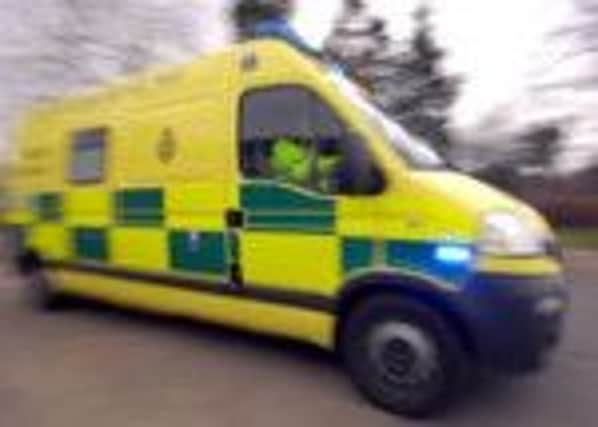High Peak hits out over fresh 999 delays


The news comes after the emergency service launched an investigation last week into why an 88-year-old woman was left lying in the road with a head injury in Hayfield for more than two hours on July 19.
Now, a taxi has driver told the Advertiser that she took a disabled man with an injured foot to Stepping Hill Hospital last Friday after an ambulance failed to attend the incident on Market Street, Whaley Bridge, at 9pm.
Advertisement
Hide AdAdvertisement
Hide AdA second woman claimed a female casualty who was injured after a fall in Hayfield at about 12.30pm last Monday, was transported to the Stockport hospital by funeral car after call handlers warned an ambulance would be more than two hours.
Finally, Paul Simpson said his 21-year-old son Adam was left lying on the A537 Cat and Fiddle road with a broken hip for more than two hours while waiting for emergency attention last Sunday.
He explained his son came off his monkey bike after hitting some gravel.
After calling 999 at 1.40pm, he said an air ambulance arrived at 3.49pm and Adam was airlifted to the University Hospital of North Staffordshire in Stoke.
Advertisement
Hide AdAdvertisement
Hide AdPaul said: “He’s been laid in hospital for days. He’s really annoyed and fed up. I don’t know if he would have been better getting there earlier, but if the delay has caused him more damage then he’s going to sue. It’s a joke, I pay £200 in national insurance a month.”
A spokesperson for East Midlands Ambulance Service said: “We are sorry that we were not able to send an ambulance response to these incidents as promptly as the callers were expecting. We are now investigating each case and for that reason we aren’t able to provide any further information about what happened at this stage.
“However, we will provide the parties involved with answers to their concerns as soon as we know the facts. If there are areas where we need to improve then we will take the appropriate action.
“We are required to respond to 75 per cent of life-threatening emergencies within eight minutes, on average over a full year, and all 999 calls are triaged so we can identify which are the most serious. Calls reporting non life-threatening injuries or illnesses are dealt with according to medical need and do not automatically result in the immediate despatch of an ambulance.”